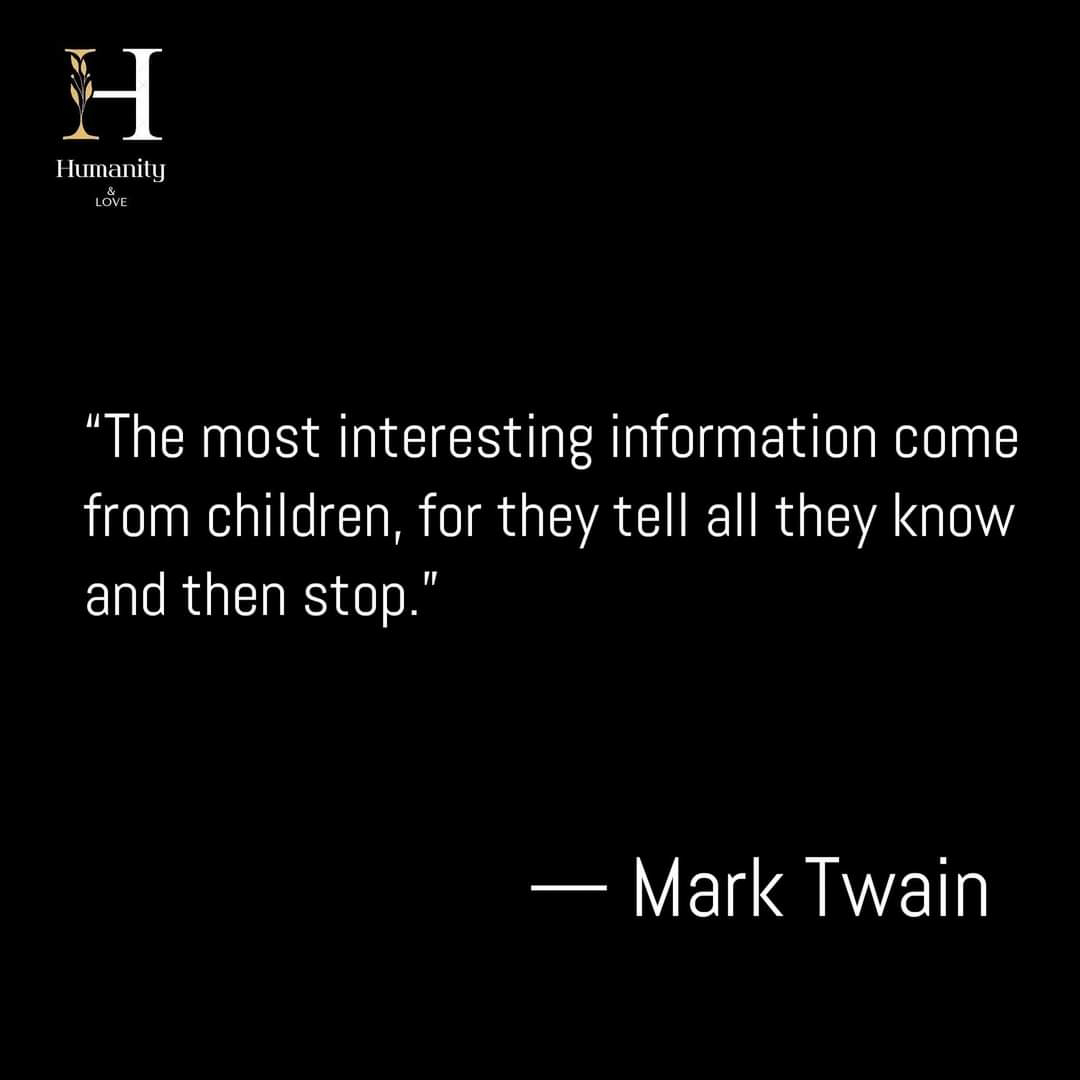"The most interesting information come from children, for they tell all they know and then stop,"
The quote you've presented, "The most interesting information come from children, for they tell all they know and then stop," attributed to Mark Twain, offers a profound reflection on the nature of communication and honesty. Twain's observation suggests that children, in their innocence, are inclined to share information without the filters adults often use. They speak frankly and directly, offering a pure, unadulterated version of their thoughts and knowledge. This candidness is refreshing and insightful because it is not obscured by the complexities of social etiquette or the strategic omissions and biases that adults often employ in conversation.
Children's way of communication is also a lesson in brevity and the power of speaking succinctly. They tend to deliver their messages without unnecessary embellishment, stopping when they have nothing more to add. This is in stark contrast with some adult discourse, where conversations can be prolonged unnecessarily, often driven by the desire to impress, persuade, or conceal.
Furthermore, Twain's quote touches on the value of listening to children. In a society where adults often disregard the views of the young, considering them naive or uninformed, Twain reminds us that children's perspectives can be both enlightening and original. Their observations and explanations of the world around them can reveal new ways of thinking and understanding.
In essence, Twain prompts us to consider the virtues of childlike communication: transparency, simplicity, and sincerity. These qualities can sometimes be lost in adulthood, and by reflecting on the nature of children's discourse, we might learn to communicate more effectively and authentically ourselves.


